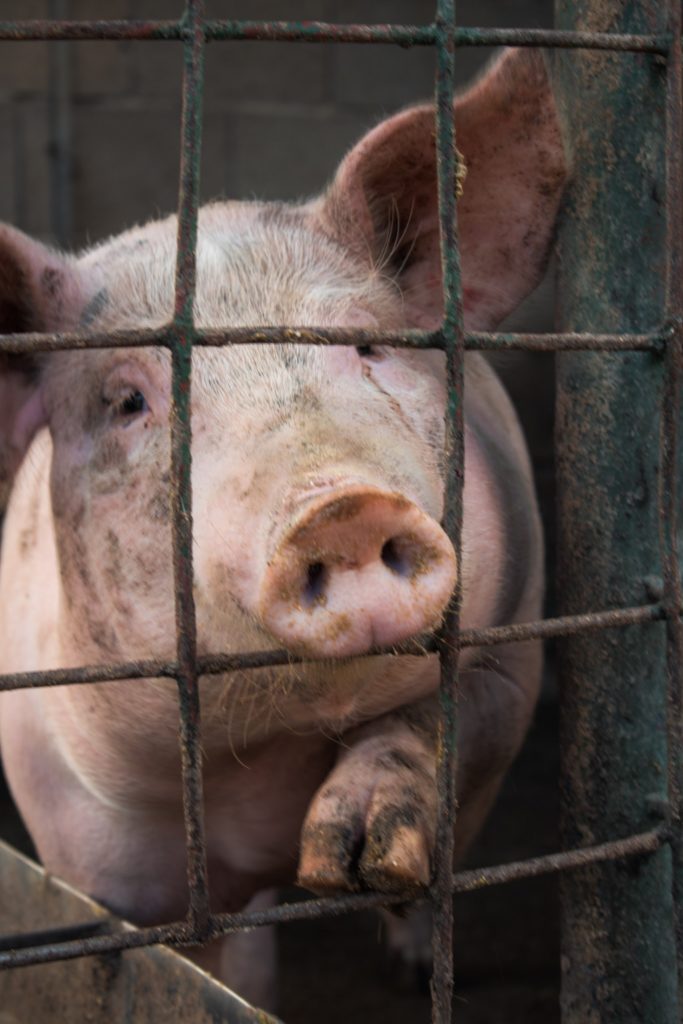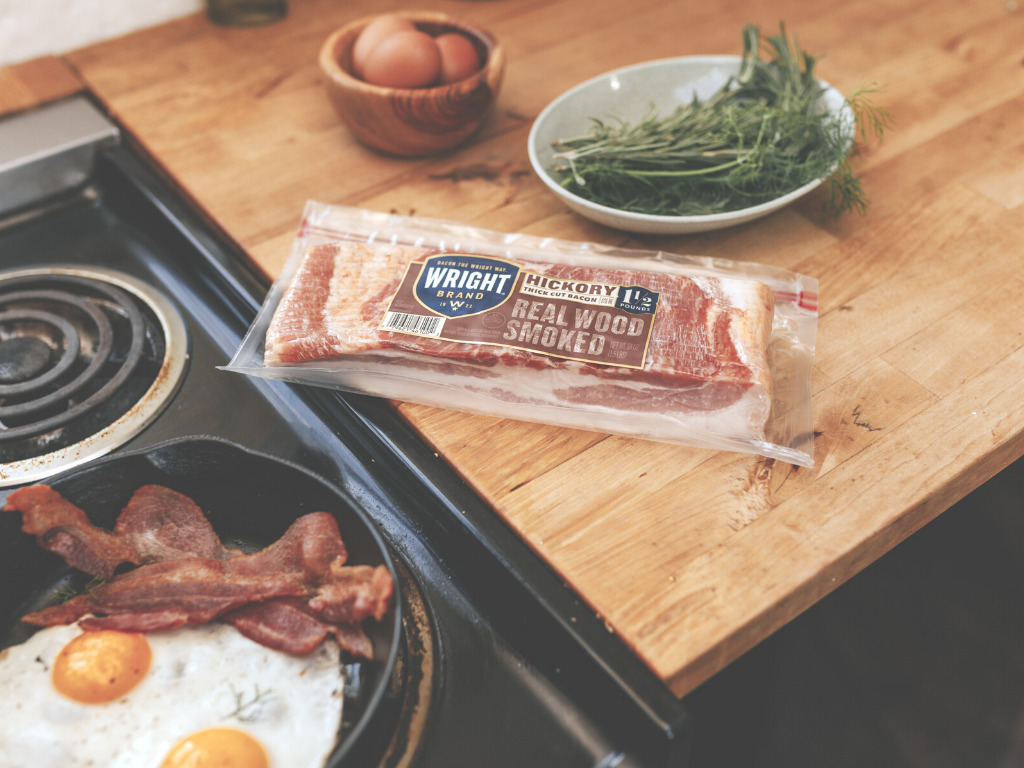4 Mins Read
It’s been more than three years since California voters passed Prop 12, one of the nation’s strictest animal welfare laws. The pork industry pushed back, saying regulations would make meeting demand for products like bacon near impossible. Is a bacon crisis really coming? And with all the innovations in vegan and cultivated meat, will it even matter?
The historic piece of California legislation, known as Prop 12, was a big moment for animal welfare; it enforces minimum space requirements for animals raised for food for sale in the state of California, meaning suppliers out of state also need to meet the requirements for animals including pigs, veal calves, and chickens.
For some industries, the shift has been easier than others; egg-laying hen operations, for example, have been moving to more ethical operations for years as suppliers were being pressured by supermarkets and restaurant chains to offer cage-free eggs. It’s still no walk in the park for the animals, but welfare experts hail it as a victory and a step toward an even more ethical food system.
Prop 12
But for hog producers, it’s been a different path. As of last year, only four percent of hog operations were compliant. Under the new rules, pigs must have 24 square feet for each sow—not much bigger than a moderate-sized dining room table. This is for pregnant and nursing animals who, up until this point, spend most of their time in gestation crates so small they can’t turn around. For the industry, it’s a big shift.
“This will cost the average family farm $15m to $17m,” Michael Formica, the general counsel for the National Pork Producers Council, told a news station in San Diego. “We believe it’s entirely unconstitutional.”

The industry is seeking support from the courts to relax the rules as the regulation went into effect at the beginning of January. Some pork suppliers have pulled product from the state, and there’s a good chance the issue will make its way to the Supreme Court.
So far, though, California isn’t seeing any shortages.
“There seems to be little disruption,” Ronald Fong, the president of the California Grocers Association told the Guardian. “We just have not seen a pork shortage.”
Fong is one of the plaintiffs in a case against the state that says final rules still haven’t been drafted by the California Department of food and agriculture, which creates confusion around compliance.
“We’re not against Prop 12,” said Fong, one of the plaintiffs in the challenge. “Our issue is: give us clear regulations and ample time to comply and we will.”
Any pork products produced before December 31 are still considered compliant, and the industry did its best to sell through as much of that as it could. With restaurants and grocers able to keep that inventory for as much as six months, it could be June before supplies start to dwindle.
What happens then?
Shortages or not, pork prices are expected to rise as a result of Prop 12 compliance—estimates suggest a 15 percent increase per hog, which could translate to about an eight percent increase for the consumer.
But a growing number of consumers are already opting for healthier alternatives to meat. Impossible Foods debuted its vegan sausage last year, and Asian-based OmniFoods brought three varieties of vegan pork to the state as well. Vegan meat currently makes up less than five percent of all protein sales, but as restaurants and supermarkets embrace offerings, consumers are proving to be more open-minded.
In January, analysts revealed that sales of McDonald’s McPlant burgers exceeded expectations in test markets. That news came ahead of expansion into 600 more locations, including locations in California. If those are successful, the chain is looking at a national launch similar to Burger King’s success with the Impossible Whopper.

Late last year, amid a cream cheese shortage that saw leading dairy brand Philadelphia offering to pay customers to not make cheesecakes, vegan brands swooped in with their dairy-free options to much success.
All of this points to a food system in flux. In Northern California, Upside Foods recently opened the world’s largest cultivated meat factory, which it says is capable of producing 400,000 pounds a year. Another Bay Area cultivated seafood brand, Wildtype, already has distribution deals in place, ready to pull the trigger once USDA approval for cell-based and cultivated meat comes through.
While public opinion about cultivated meat is not nearly as enthusiastic as it is for plant-based, a recent taste-test proved it may be an easier sell than previously thought. One expert couldn’t tell the difference between lab-grown chicken and the meat from a live animal.
Regulatory approval timelines are fuzzy, but expert estimates put it at 12-18 months out for cultivated meat in the U.S., which could be well-timed to swoop in and offer California’s pork consumers the best of both worlds: lots of meat and no cage size pushback to contend with.
Lead image by Wright Brand Bacon on Unsplash.




